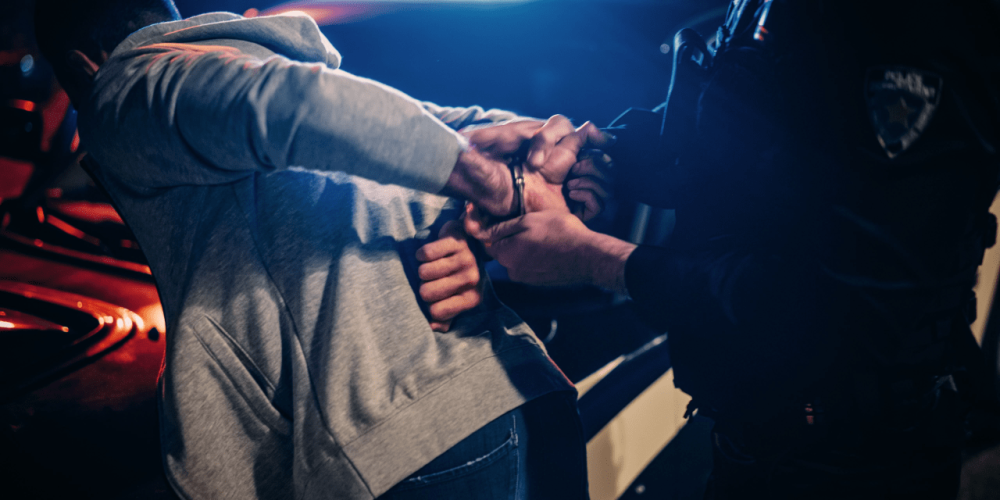Fast Facts: Do Drunk Drivers Get Arrested Every Time?
Do drunk drivers get arrested? Drunk driversmay be arrested when law enforcement determines there is probable cause based on observed impairment and available evidence. Police officers have the authority to arrest anyone suspected of driving under the influence, and this typically happens at the scene of the traffic stop.
When an officer suspects impaired driving, they conduct field sobriety tests and breathalyzer examinations. If these tests indicate intoxication above the legal limit, officers may proceed with an arrest, depending on the circumstances. The arrest process is standard procedure across all 50 states, though specific protocols may vary by jurisdiction.
Expert Guide: How Police Determine When Drunk Drivers Get Arrested
Initial Traffic Stop
Police officers initiate DUI investigations through various methods. They may observe erratic driving patterns, respond to accident scenes, or conduct sobriety checkpoints. Once stopped, officers look for signs of impairment including bloodshot eyes, slurred speech, and alcohol odor.
Field Sobriety Testing
Officers typically administer three standardized field sobriety tests. These include the horizontal gaze nystagmus test, walk-and-turn test, and one-leg stand test. Poor performance on these tests provides probable cause for arrest.
Chemical Testing
Breathalyzer tests measure blood alcohol content (BAC). In most states, a BAC of 0.08% or higher for drivers over 21 may be used as grounds for arrest under applicable DUI laws. Commercial drivers face arrest at 0.04% BAC, while drivers under 21 can be arrested for any detectable alcohol.
Legal Reality: What Happens After Drunk Drivers Get Arrested
Booking Process
Following arrest, drunk drivers undergo standard booking procedures. This includes fingerprinting, photographing, and processing personal information. Officers typically hold suspects until they sober up or post bail.
Government Oversight: Federal and State Agency Involvement
The National Highway Traffic Safety Administration (NHTSA) sets national standards for DUI enforcement and tracks arrest statistics nationwide. According to NHTSA data, law enforcement agencies report a high volume of DUI-related arrests annually across the United States.
The Federal Bureau of Investigation (FBI) maintains comprehensive arrest records through its Uniform Crime Reporting program. FBI statistics show that drunk driving arrests account for nearly 1 in 10 of all arrests made by law enforcement agencies nationwide.
State Department of Motor Vehicles (DMV) agencies handle administrative license suspensions independently of criminal courts. DMV offices process tens of thousands of DUI-related license suspensions each year, often before criminal cases reach trial.
Immediate Consequences
Arrested drunk drivers face immediate license suspension in most states. Administrative license suspension occurs independently of criminal proceedings and takes effect within days of arrest.
Court Proceedings
Key Milestone: First Court Appearance
Arrested drunk drivers must appear in court within a specified timeframe. During arraignment, defendants enter pleas and learn about potential penalties. The legal process can extend for months depending on case complexity.
Criminal Penalties
First-time offenders may face fines, license suspension, and possible jail time. Repeat offenders may face increased penalties depending on prior history and case circumstances.
Final Take: Why Drunk Drivers Get Arrested Consistently
Do drunk drivers get arrested reliably? Law enforcement agencies prioritize DUI enforcement because impaired driving causes thousands of preventable deaths annually. Police departments receive specialized training for DUI detection and arrest procedures, ensuring consistent enforcement across jurisdictions.
The legal system treats drunk driving as a serious public safety threat. Immediate arrest is intended to address public safety concerns by removing suspected impaired drivers from the road. Enforcement efforts are part of broader strategies aimed at addressing impaired driving and public safety concerns.
Next Step: Understanding Your Rights When Drunk Drivers Get Arrested
If you or someone you know faces DUI charges, you may wish to speak with a licensed attorney to discuss the situation and available legal options. For legal help and attorney referrals, visit 1800duilaws.
For qualified attorneys seeking exclusive drunk driving defense leads, visit our website to learn more about our specialized lead generation services.
Frequently Asked Questions About Drunk Drivers Arrested at Checkpoints & Accidents
1. Do Drunk Drivers Get Arrested at Checkpoints?
Yes, drunk drivers get arrested at sobriety checkpoints when they fail field sobriety tests or breathalyzer examinations. Checkpoints are legal in most states and result in thousands of DUI arrests annually.
2. Do Drunk Drivers Get Arrested for First Offense?
Yes, first-time drunk drivers face immediate arrest just like repeat offenders. Police don’t differentiate between first-time and repeat offenders during the arrest process.
3. Do Drunk Drivers Get Arrested Below 0.08% BAC?
Sometimes. Officers can arrest drivers with BAC below 0.08% if they show clear signs of impairment from alcohol or drugs. Legal intoxication isn’t always required for DUI arrest.
4. Do Drunk Drivers Get Arrested Without Breathalyzer?
Yes, drunk drivers can be arrested based on officer observations and field sobriety test results alone. Breathalyzer tests strengthen cases but aren’t always required for arrest.
5. Do Drunk Drivers Get Arrested at Accident Scenes?
Absolutely. Police routinely arrest drunk drivers involved in accidents, especially when injuries occur. Accident scenes often provide additional evidence of impairment.
Key Takeaways
- Immediate Action: Drunk drivers face arrest at the scene when caught by police
- Legal Standard: BAC of 0.08% or higher may be used as evidence supporting arrest under applicable laws
- Offense History: Arrest procedures and potential consequences vary based on individual circumstances
- Multiple Triggers: Arrest can occur through traffic stops, checkpoints, or accident investigations
- Serious Consequences: Arrest leads to immediate license suspension and criminal charges








